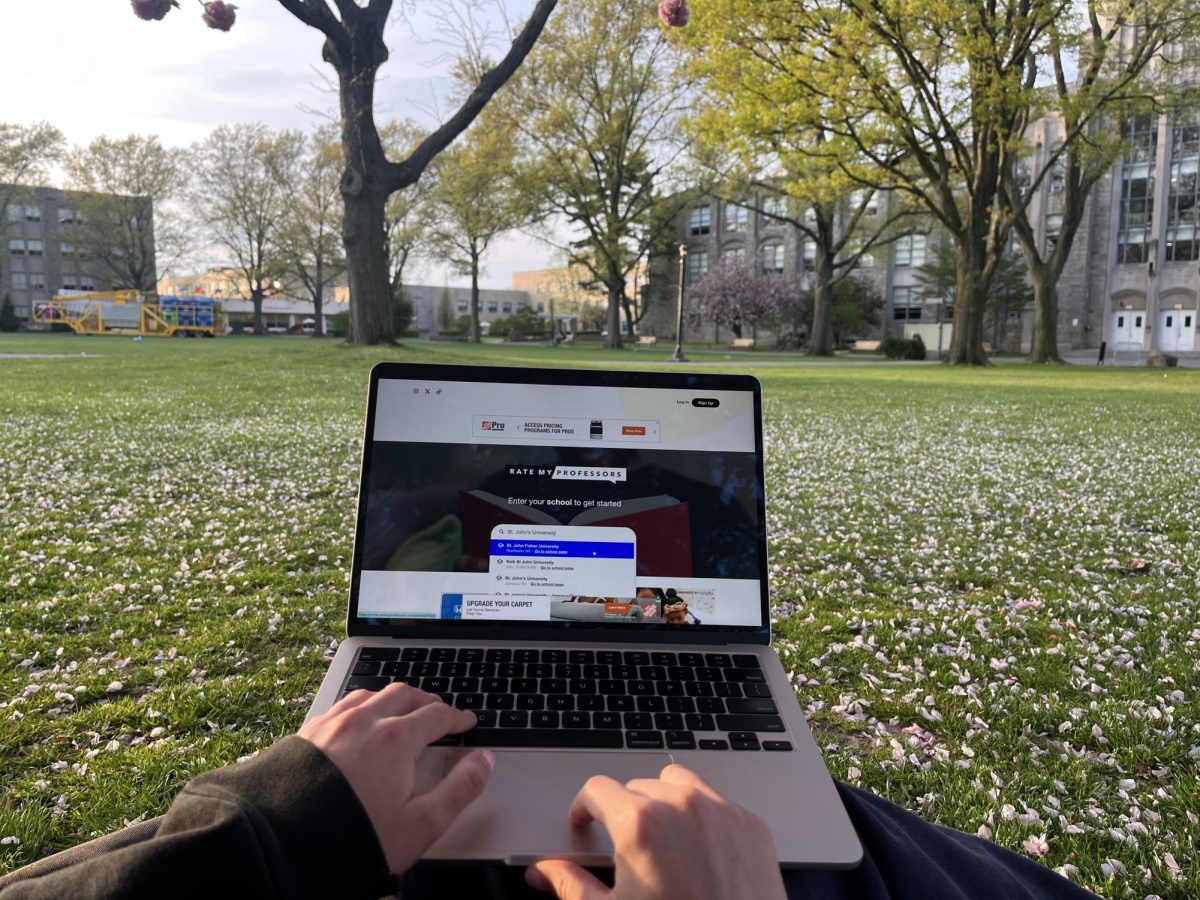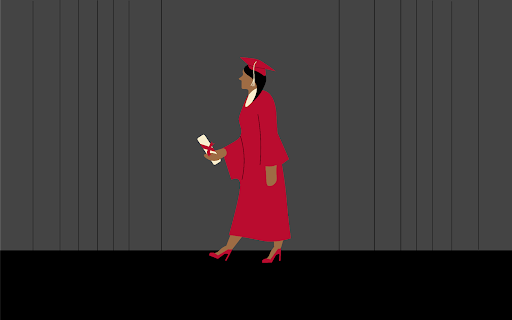
Upon graduation, college students often find themselves in entry level job positions. How women are treated in these jobs is the focus of the novel “Smile and Look Pretty” by Amanda Pellegrino. Drawing on her own experiences and those of her friends, Pellegrino shines a light on the gray areas of working in a toxic environment. The story focuses on four friends, who are each in an environment that takes advantage of them, and how they band together to turn things around.
The hopes and dreams four women (Cate, Lauren, Olivia and Max) have for their careers after leaving college turn out to be empty promises from management. Their male counterparts get promoted over them, and after being promised “you’re next,” next never comes. The situations that they are forced into are degrading, humiliating and inappropriate, and that is when they decide to take control by asking, “What if they all got together? What if they called bs? What if they all said no?”
“I think that women are realizing how strong they really are; they’re embracing prioritizing themselves and not simply doing what everyone else is telling them to do,” Pellegrino said in a phone interview. “The ‘Me Too’ movement covered the blatantly obvious ‘this isn’t okay’ situations…This kind of gray area hasn’t really been discussed where we come home from work and say ‘Is this weird? I feel like it’s weird.’ It’s those moments that I really wanted to highlight.”
And while the book is an enjoyable and certainly relatable read, there are lessons to be learned here for female college students who will soon enter the business world. Knowing where to draw the line and how to create boundaries is essential. An example of one of the main character’s experiences was Olivia’s experience when she is asked to work from her boss’s apartment, where he is working out naked. Based on their situations, all four women recognize that the abuse of power by their male executives is not acceptable, which leads them to conspire “against the patriarchy.”
One of the lessons that Pellegrino stresses, especially for women, is to “cut it off at the root, and start saying no a little more.” And as college students preparing for the work world, we not only need to be aware of these things, but to know when something crosses the line. “Career women are starting to say ‘no’ more, which is really important and a hard lesson to learn – saying ‘no’ without guilt.” Pellegrino adds, “We are allowed to put ourselves first.”
“Women are starting to re-evaluate what we want as individuals versus what we are told we should have.” Pellegrino continues, “Women are adjusting their definition of ‘having it all’ and making it a lot more personal.” One of the topics of discussion that “Smile and Look Pretty” generates is exactly what Pellegrino stated: what it means to “have it all” to women today, as well as what will be tolerated or not tolerated in a workplace.
Does ‘having it all’ mean having a career, having kids, being in a relationship or being single? Will you tolerate being treated less because you are a female? Picking up your boss’s dry cleaning? Being reprimanded for a mistake you did not make? Two females in the Tobin School of Business at St. John’s University gave two distinct approaches to ‘having it all’ and workplace toleration.
“Having it all in my career is all about flexibility,” Molly Shaughnessy, a senior economics major, said on her definition of ‘having it all.’ “I would love to have professional, as well as personal, success, and to me that is all about being able to do what works for you.”
Daniela Talio, a freshman Accounting major, shared a similar response. “Whenever I work hard at something in life, I know I am also working towards a future that I will feel fulfilled in,” Talio said. “A life with a loving family and a job I will be glad to wake up to every day.”
When given the examples of abuse of power from “Smile and Look Pretty,” both students stated their personal workplace tolerance. “Any tasks assigned to me to undermine my capabilities and role as a member of a company would not be tolerated [by me]. I would never put up with consistent disrespect in the form of menial tasks or rude behavior,” stated Shaughnessy.
“[Drawing] the line when minute tasks become the only thing expected from me, where I am unable to show my full potential,” Talio asserted as an unacceptable workplace situation. “Though I am a fair and an understanding person, I will not let my knowledge in my field go unnoticed.”
Women must know what is best for them; going into a working field after college can be intimidating, but we need to know what works for us – not what works for a male superior. It is incredibly beneficial to not only see women in positions of authority, but to also see them in positions available to them because they were earned. It builds confidence knowing that you can get there, but “Smile and Look Pretty” brings forth the fact that women should not be victims in order to achieve their career goals.
“My first class in the [Tobin School of Business] was with a female professor, and she made me feel extremely comfortable being there,” Talio recalled. “I felt my past anxiety ease about entering this field.”
“There are so many different networks of strong women, and those who support strong women, in business, that I have felt more supported and encouraged than I ever could have imagined,” said Shaughnessy regarding the people at the Tobin School of Business. It is obvious that current students will not tolerate what the main females in “Smile and Look Pretty” were expected to endure. The decision the women in “Smile and Look Pretty” come to is that they will no longer put up with misogyny in the workplace, giving them the opportunity to take back control of their lives and careers.




















